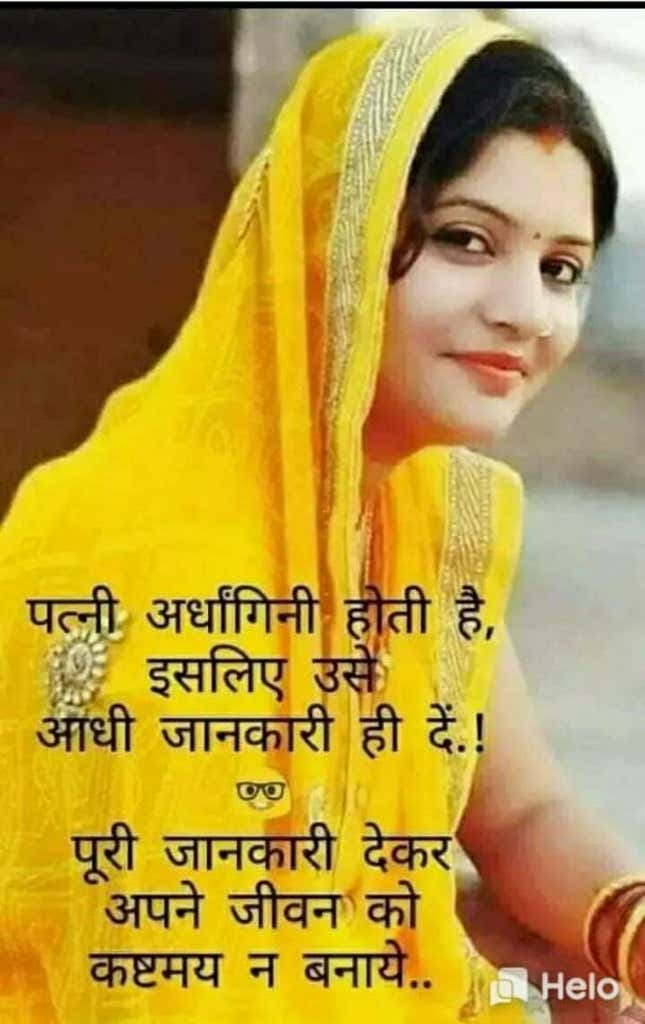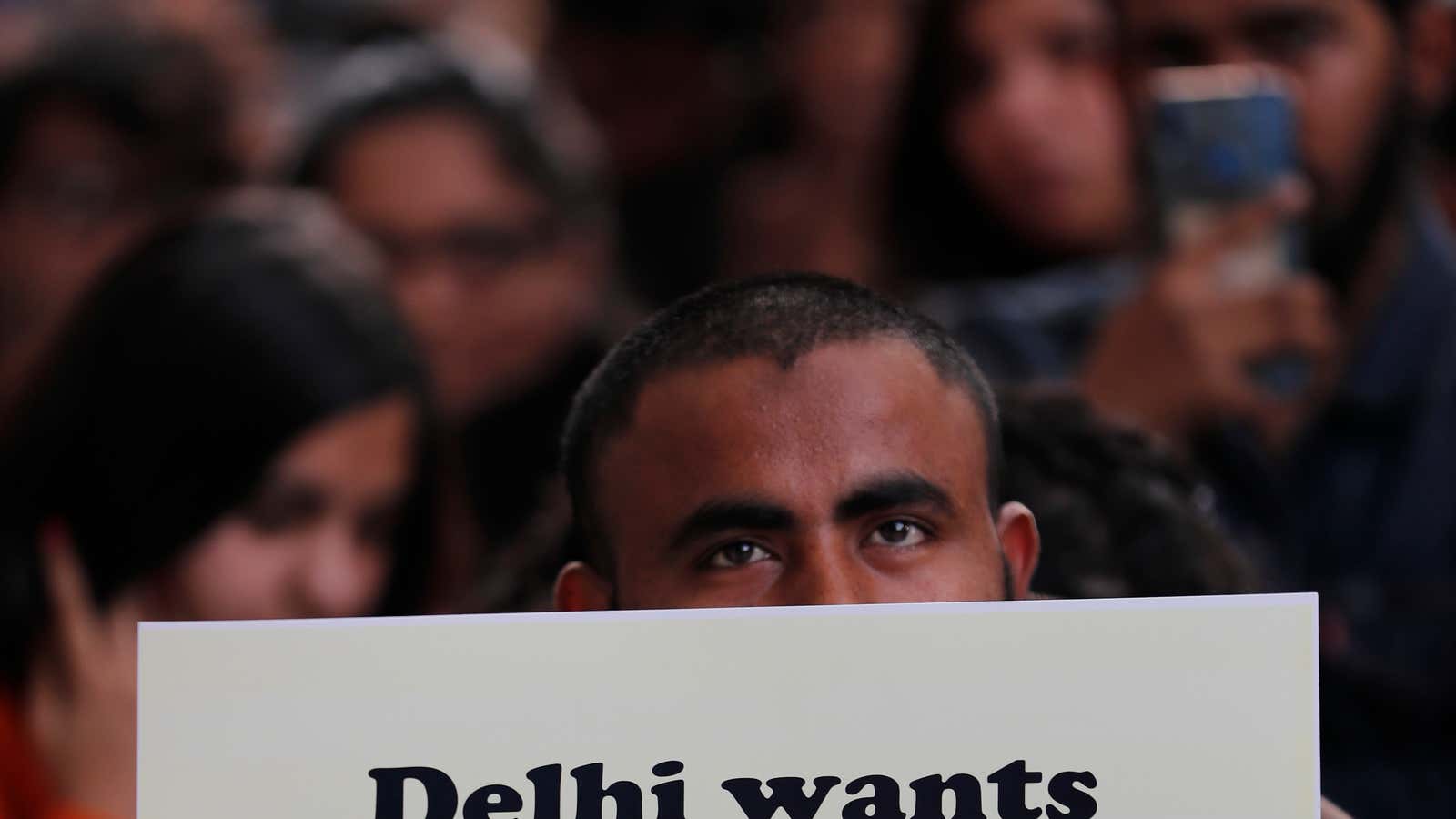Two elderly members abruptly exited my husband’s family WhatsApp group last month, furious over a cousin’s repeated requests to stop forwarding messages that spawn religious hatred.
“You and I can ignore these vile messages and move on unaffected, but there are young kids in this group and they will get influenced,” the cousin told me when he called to discuss their withdrawal, which had triggered tensions across the family. I couldn’t do more than just hear him out and feel helpless.
This feeling only aggravated manifold as Delhi burnt. Nearly 30 people have been killed in communal violence in the city I grew up in. There’s a collective sense of shame, fear, and anxiety all around.
Most importantly, there is this foreboding and familiar sense of darkness descending. A darkness I’m so used to over the years, thanks to the free-flowing bile in my own network. It isn’t difficult to see that the evil out there on Delhi’s bloody streets right now has existed within us for long.
Meanwhile, on the family WhatsApp groups, even today, flowery good morning messages arrive like clockwork, followed by generous helpings of casual extremism, sexism, elitism, and bigotry.
“They”
My earliest recollection of a slur referring to “them” in my Brahmin, urban, well-educated, light-skinned, and upper-middle-class family was “sarpaan de puttar” (“sons of snakes”). My grandmother often used it while narrating gory stories of Partition when her family had to cross over to the newly-formed India overnight.
She lost her two young brothers in 1947, which widowed her 20-something sister-in-law. For years, my granny’s mother-in-law called her “apshaguni” (inauspicious) for having “gotten her brothers killed.”
As I grew up and developed a wider worldview, I wanted to discuss with her how thousands of Muslim women met with the same plight as hers, and so hatred was not the solution. I haven’t done that yet because, at over 90 years of age, she’s too frail for this discussion.
Today, though, she’s not the only one discussing “them.”
In the past two days, Delhiites have seen images of a drilling machine being poked through a human skull, a video of cops thrashing a bunch of already badly wounded people and forcing them to sing the National Anthem, houses and shops being burnt, and police-backed mobs pelting stones in Muslim-dominated neighbourhoods—all in their own city.
Delhi has been visited upon by Godhra.
Much of the general chit-chat around me is now overly venomous and scary. Sample this: Yesterday (Feb. 26), in one family WhatsApp group, someone posted images of a bunch of Muslim kids getting on a rickshaw in his neighbourhood with the message: People “like this” are now just a few kilometres from our house.
A day earlier, on another such group, an aunt who retired as a government school teacher in Delhi, forwarded this:
मुस्लीम ने मोदी से कहा 10-15 मिनट के लिए पुलिस हटा दो एक भी हिन्दू नहीं बचेगा
तो मोदी ने बोला हटाई तो थी गुजरात से 7-8 मिनटों के लिए
अब वहां तुम सब 10% पर आ गये
मुसलमान ने बोला छोड़िए न सर मै तो मजाक कर रहा था
मोदी ने फिर से बोला बेटा जिस दिन मैने मजाक कर दिया न उस दिन कब्रिस्तान कम पड़ जाँएगे
Translation: A Muslim man told (Indian prime minister Narendra) Modi to remove police for 10-15 minutes and he will kill all the Hindus. Modi replied, “I had removed them for seven-eight minutes in Gujarat, and now your community is reduced to 10% of the population.”
“I was just joking,” said the scared Muslim man. And Modi said, “Son the day I joke, there will be no space left for dead bodies in the graveyard.”
The message, of course, ended with “Jai Shri Ram” and a strongly-worded request to forward this to over 20 others unless you’re “not a son of Hinduism.”
And it doesn’t stop at that. Attendant attitudes like sexism and misogyny are merely one layer below.
A cousin, who is a journalist with an English news channel, and has been risking her life to cover the riots, is being called “stupid.” Why? Because “how can a woman” go to such a place?
Of sexism, elitism, and bigotry
If the regular content of WhatsApp messages and Twitter posts during these times are anything to go by, Indian society is likely teetering on the edge of outright bloodlust.
Phrases like “mob lynching,” “love jihad,” and “ghar waapsi” (a euphemism for reconversion to Hinduism) have entered our lexicon, even if to only sound witty often.
We watch videos of torture in the name of caste and religion every day, feel uncomfortable for a bit, then quickly move on to questioning their authenticity or conveniently shift our gaze to gorgeous endless Instagram feeds.
We don’t admit it, but even the jokes, memes, and poetry we consume are mostly sexist and racist. Sample this:
😂😝😊😁
पति पत्नी को सुबह एक साथ बैठकर चाय पीते हुए देखकर ही शायद
बाघ बकरी चाय का नामकरण हुआ है।
😃😃
Translation: A husband and wife having tea together in the morning inspired the name of the tea brand Wagh Bakri (tiger and goat).
And then:

I’ve often struggled to make peace, distract myself or ignore, and on rare occasions voiced my opinions. But each time, I have only got entangled further in the web of convenient misinterpretations of history, twisted logic, and fake news.
There are elaborate justifications even for unpalatable hard facts. For example, bring up India’s slowing economic growth and someone is quick to explain how it’s all because “the Congress ruled India for 60 years.” And within no time, it’s a verbal free-for-all.
The argumentative…
Often, family dinners have inexplicably slipped into screaming matches and friendly debates that result in name calling. If ever there was evidence of deep political polarisation within urban Indians, it’s at the dinner table. Narendra Modi, for one, is a particularly inconvenient subject to be brought up during meals, in my experience.
So, a while back, I decided I was going to stop expressing my political beliefs. “My politics is personal,” I would say to duck out of conversations that I knew were not going to end well. The strategy has kept me out of trouble, momentarily, but it’s flawed because by not taking a stand against them, I let them grow louder.
Yesterday, while tracking the Delhi riots, my hyper-Hindu, Modi-supporting aunt forwarded a (supposedly) Vietnamese proverb about how goodness was better than beauty. For the first time in months, I contributed to the conversation and told her that I wish the prime minister was reading this. It’s been over 24 hours and my aunt hasn’t responded to me yet.
I believe it’s time to reclaim my space in the discussion, and it begins with exposing the hollowness of the happy names—Là Fàmilià, Beautiful Family, and Lovely Ladies—of these WhatsApp groups.
We welcome your comments at ideas.india@qz.com.
